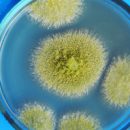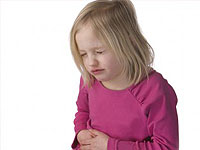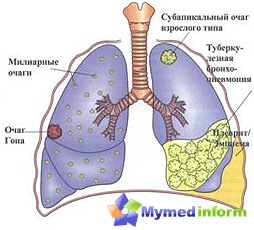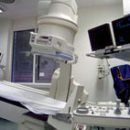What is a Siberian ulcer? What forms of Siberian ulcers exist? How to diagnose, treatment and prevention of Siberian ulcers? Answers to these questions you will find in the article.
Content
What is a Siberian ulcer
Siberian ulcer - a sharp infectious disease that proceeds in the form of
Skin, less often intestinal, pulmonary and septic forms. Refers to the group especially
Dangerous infections.
The causative agent is a siberiated wand, Bacillus Anthracis, forms disputes and
capsule. Disputes of Siberian ulcers are very resistant in the external environment, they can persist
in the soil up to 10 years and more. Thinking skin, as well as riding, salting and smoking
animal meat does not destroy the disputes of the pathogen.
The natural tank of the symbolized stick is soil. Source of infection
Are Pets - Horses, Camels, Pig Sheep, Goats. Patients animals
distinguish the pathogen with urine and feces.
Man infection occurs when leaving for sick animals, scan of livestock, processing
Meat, as well as in contact with animal products (skins, leather, fur
products, wool, bristles), disgraced disputes.
Infection can occur through the soil, in this case, the disputes fall into the skin
through microtrauma. It is possible to infect aerogenic by inhalation of dust
or bone flour, as well as an alimentary way when eating a bad coat
meat and no boiled milk.
Entrance gate of infection is leather. Usually the pathogen is introduced into the open
Skin sites of the upper limbs and head, less often torso and legs. In a few
The clock from the moment of infection begins the reproduction of the pathogen in the field of entrance
The gate of infection, while the pathogens form capsules and excotoxin allocate,
which causes dense swelling and necrosis (samples) of fabrics. From primary sites
reproduction pathogens on lymphatic vessels reach lymphatic nodes,
And in the future it is possible to distribute microbes with blood current by various
Organms. With aerogenic infection, disputes fall into the lymph nodes of the mediastinum,
where the reproduction and accumulation of the pathogen occurs, the lymph nodes are necrotized,
This leads to their inflammation and the injection of the pathogen in blood (bacteremia).
As a result of Bacteremia there is a siberiaic pneumonia (inflammation of the lungs).
When using infected meat, disputes penetrate the lymph nodes
intestine. The intestinal form of Siberian ulcers is developing, in which the pathogens
Also penetrate the blood and the disease goes into a septic form.
After the suffering disease, persistent immunity is formed.
Forms of Siberian ulcers
The incubation period ranges from several hours
up to 8 days (more often 2-3 days). Distinguish the skin, pulmonary and intestinal forms of Siberian
Orately.
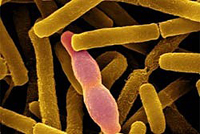
Skin shape is characterized by local changes in the field of infection.
First, the red item spot appears, which is raised above the level
The skin, forming a papula, then on the spot of Papula develops vesicles (bubble) with
transparent or bleeding content. Patient with continuing itching breaks
A bubble, in its place an ulcer with dark (black) bottom, on the periphery
Yazovki develops inflammatory crimson roller, around the central stamp
Located in the form of necklaces secondary pustules, when the sizes are destroyed
Ulcers are increasing.
At the same time, skin swelling develops around ulcers, which can be quite extensive.
The process proceeds quickly, from the moment of the appearance of the spots before the formation of the Pustuly passes
few hours. A characteristic symptom is a decrease or a complete absence
Sensitivity in the field of ulcers, as well as the absence of pain in the field
Increased lymph nodes. Usually there is a single ulcer, although sometimes
There may be multiple.
By the end of the first day or on the 2nd day of the disease, signs of general intoxication appear - the body temperature rises to 40 degrees, the total weakness, a breaking, head
pain, heartbeat. Fever is kept for 5-7 days, then the temperature
Reductantly decrease. By the end of the 2-3rd week, the Strap is brazed and the wound heals with education
scar.
The pulmonary form of Siberian ulcers begins acutely, it takes hard and even when
Modern methods of treatment can end the death of the patient. Among the complete
Health occurs a stunning chill, the body temperature quickly reaches high
Numbers (40 degrees and above). There is a tear, photophobia, redness
conjunctive, sneezing, runny nose, hoarse voice, cough. The state of patients from the first
The clock of the disease becomes heavy, severe stigma pains in the chest appear, shortness of breath,
The skin acquires a blue shade, the heartbeat is read up to 120-140 beats
per minute, blood pressure decreases. There is a blood admixture in sputum.
Death comes in 2-3 days.
In the intestinal form of the Siberian ulcers, an increase in body temperature, pain
In the top of the abdomen, diarrhea and vomiting. In the vomit's masses and in feces can
Be an admixture of blood. The belly will break, sharply painful when feeling, detected
Signs of irritation of the peritoneum. The patient's condition is rapidly deteriorating, develops
infectious toxic shock, may occur the death of the patient.
With any form, a symbolic sepsis can develop with the occurrence of secondary
Foci of infection - meningitis, liver, kidneys, spleen.
Diagnosis, treatment and prevention of Siberian ulcers
Based on the data of epidemiological history (profession
patient contact with patients with animals and others.). Characteristic changes are taken into account
Skin: the presence of a dark stamp surrounded by secondary pustlas, edema and hyperemia,
Painlessness of ulcers. The laboratory confirmation of the diagnosis is detection
Siberian chopstick. For research takes the contents of the pustula, Vesiculi,
tissue. When suspicion of pulmonary and intestinal shapes take
Blood, sputum, feces. As an auxiliary method, you can use
Skin-allergic sample with a specific allergen - anxissine.
Treatment: held in an infectious hospital. The patient is placed in a separate ward, the selection of the patient (feces, urine, wet)
and all objects of care are carefully disinfected. Antibiotics of the penicillin group - benzylпenicillin sodium salt
intravenously 24 million units per day, 4-6 administrations. Therapy duration 7-10 days.
In case of intolerance, ciprofloxacin is prescribed inside 0.75 g or intravenously
0.4 g 2 times a day; Doxycycline inside 0.1 g 2 times a day; Erythromycin inside
0.5 g 4 times a day.
Prevention: organization and conduct of veterinary supervision,
Pet vaccination. In the event of the death of animals from the Siberian masses of the carcass
Animals must be burned, and food obtained from them,
destroy.
Persons who were in contact with patients with animals or people,
are subject to active medical supervision for 2 weeks.

